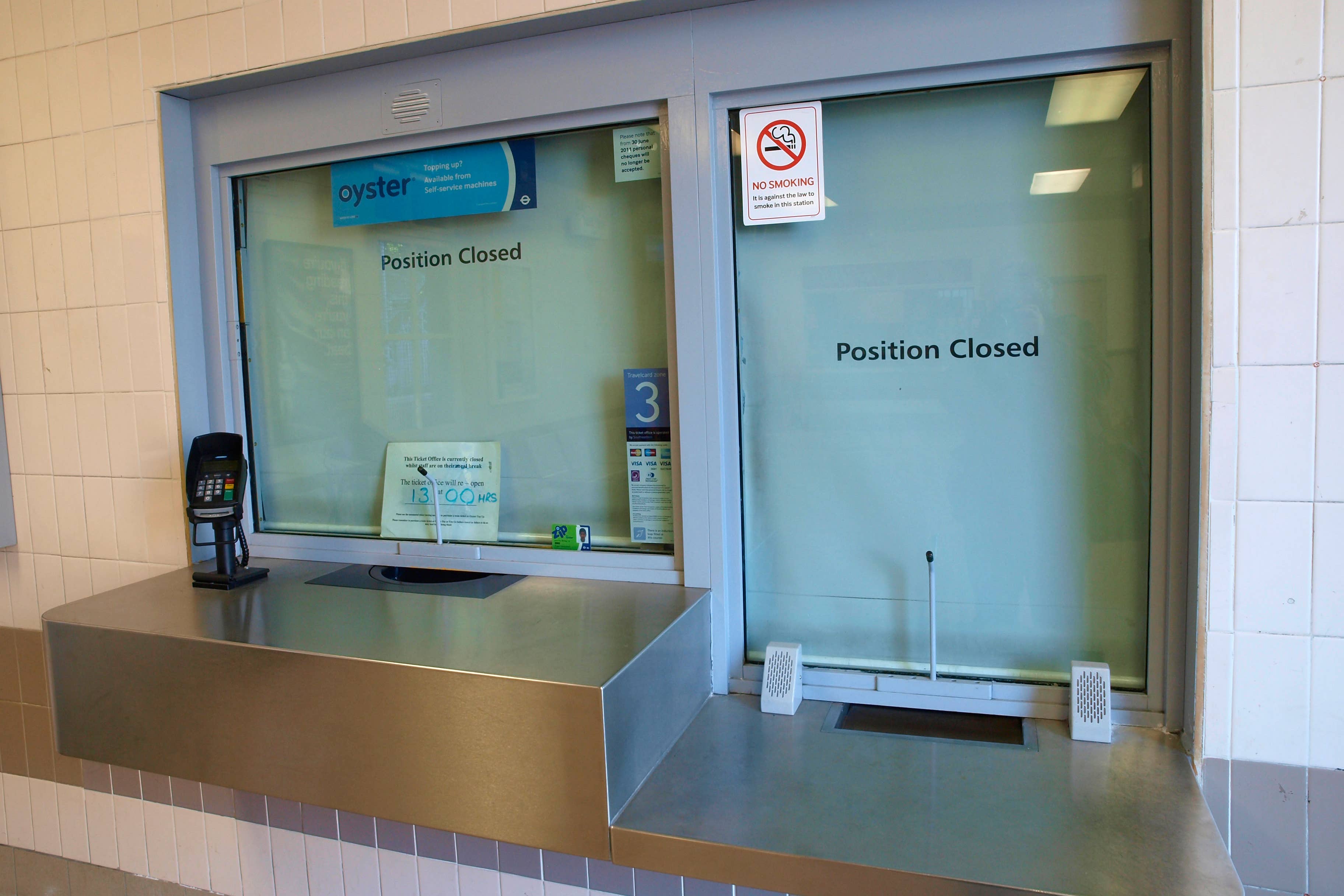A railway without people? The government’s dystopian vision that’s hurtling down the line
Government’s big idea is for a railway with fewer human operators, and closing ticket offices is just another step towards that goal. Keep on like this, warns Christian Wolmar, and they’ll soon have no passengers at all


Passengers may be on to something when they joke there is a deliberate plot in government to try to stop people from using the railways.
Last month, in my Calling All Stations podcast, I revealed that ministers were asking train companies to stop providing wi-fi in order to cut costs. Not surprisingly, that caused an uproar as passengers complained that the existing lousy reception on many trains is at least better than nothing. But still they kept on coming back to the railways, with passenger numbers rapidly returning towards pre-Covid levels.
Deep in the Department for Transport, a bright spark seems to have decided this rush of eager travellers must be stopped. This clever chap – probably Mark Harper, who is nominally secretary of state for transport but whose heart lies clearly in his old job as an accountant – devised a much wider scheme to prevent anyone letting the train take the strain: close nearly all the ticket offices to make it hard for people to buy them. That’ll show ‘em!
Wonderful machines, and the increased use of electronic reservations, will replace silly old paper tickets. After all, only 12 per cent of passengers now use ticket offices compared to more than 80 per cent a couple of decades ago (which is true, but hardly surprising given this was the pre-digital age).
There are a few ticket offices not doing enough business to justify their existence and where it makes sense to redeploy personnel. At the beginning of this great idea, ministers agreed to retain any ticket office selling at least a dozen tickets per hour; but in the department’s rush to make cuts and put passengers off, this stricture was set aside.
The closure plans unveiled this week reveal that only major stations will retain ticket offices – though even this varies from area to area as train companies have interpreted the rules differently. But it would be a mistake to think this was part of a careful plan to modernise the railway; it is a short-term response to Treasury arguments that government subsidy of the railway has reached ‘unsustainable’ levels – though exactly what is sustainable has never been determined.
This is not, as the BBC wrongly reported, an initiative from the train companies – although they have gone along with it like lambs to the abattoir. They have spent a quarter of a century since privatisation running ticket offices, and cut very few. Now, the cost of keeping them open is increasingly being met by the government because Covid finally put paid to the old franchising system and operators – even those not actually run by the DfT – have become mere ciphers for government policy.
No, this initiative is entirely down to the government, with Harper bowing to pressure from the Treasury that thinks it will reduce the public cost of running the railway. But there’s clear evidence to show this will not be the case. Many passengers will be deterred from using the railway altogether if they are unable to buy a ticket from a clerk in a booking office.
In part, that’s because Britain’s rail pricing can be so arcane that navigating it sometimes requires a PhD in advanced maths on top of timetable knowledge. It’s also because there are many users whose needs are too complex for a machine: they might be disabled, or taking a bicycle, or planning a journey that needs numerous changes.
Moreover, Harper has already allowed operators to restrict the types of tickets available from ticket machines. With reduced ticket sales, Britain’s railways will cost more to run, not less.
So it’s hard not to see ticket office closures as some kind of passenger deterrence scheme. Everyone knows that passengers like a personal presence at stations; the argument that booking clerks would be redeployed to barriers is clearly nonsense – as proved by some train operators, such as Northern, admitting that overall staff reductions are all part of the plan.
The big long-term idea is for a railway without any human operators; Harper has already asked train operators to consider driverless trains as a way of removing the threat of strikes. Therefore, we humble passengers look forward to a dystopian world where the railway system has no visible human workforce. I suspect it will have no passengers, either, and Harper will be a happy chap.
Christian Wolmar is a transport writer; his latest book is ‘British Rail: a New History’, published by Penguin, and his podcast is ‘Calling All Stations’.
This article was amended on August 9 2023. It originally said that it was not possible to buy an open return ticket from a machine at Euston Station, but that was not the case when the article was published.






Join our commenting forum
Join thought-provoking conversations, follow other Independent readers and see their replies
Comments